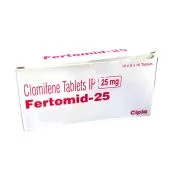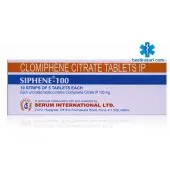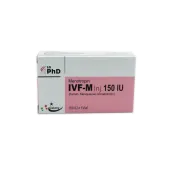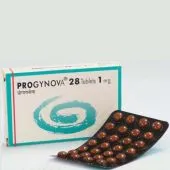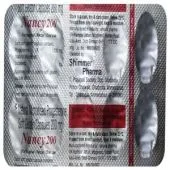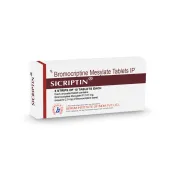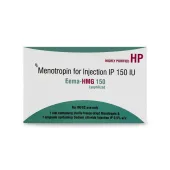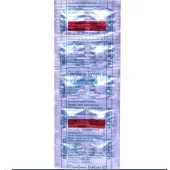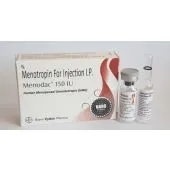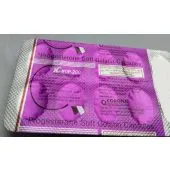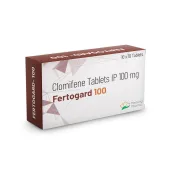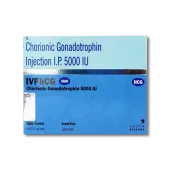Infertility Therapy

Infertility Therapy
What is Infertility
Almost all of us want to conceive a child at some point of life. However, due to factors such as unhealthy lifestyle, stress and physical inability, some couples face a hard time to do so. Most couples (approximately 85%) will achieve pregnancy within one year of trying, with the greatest likelihood of conception occurring during the earlier months. Only an additional 7% of couples will conceive in the second year. As a result, infertility has come to be defined as the inability to conceive within 12 months. This diagnosis is therefore shared by 15% of couples attempting to conceive. We generally recommend seeking the help of a reproductive endocrinologist if conception has not occurred within 12 months.
Types of Infertility
- Primary infertility refers to couples who have not become pregnant after at least 1 year having sex without using birth control methods.
- Secondary infertility refers to couples who have been able to get pregnant at least once, but now are unable.
Causes of Infertility
Many physical and emotional factors can cause infertility. It may be due to problems in the woman, man, or both.
Female Infertility
Female infertility may occur when:
- A fertilized egg or embryo does not survive once it attaches to the lining of the womb (uterus).
- The fertilized egg does not attach to the lining of the uterus.
- The eggs cannot move from the ovaries to the womb.
- The ovaries have problems producing eggs.
Female infertility may be caused by:
- Autoimmune disorders, such as antiphospholipid syndrome (APS)
- Birth defects that affect the reproductive tract
- Cancer or tumor
- Clotting disorders
- Diabetes
- Drinking too much alcohol
- Exercising too much
- Eating disorders or poor nutrition
- Growths (such as fibroids or polyps) in the uterus and cervix
- Medicines such as chemotherapy drugs
- Hormone imbalances
- Obesity
- Older age
- Ovarian cysts and polycystic ovary syndrome (PCOS)
- Pelvic infection or pelvic inflammatory disease (PID)
- Scarring from sexually transmitted infection, abdominal surgery or endometriosis
- Smoking
- Surgery to prevent pregnancy (tubal ligation) or failure of tubal ligation reversal
- Thyroid disease
Male Infertility
Male infertility may be due to:
- Decreased number of sperm
- Blockage that prevents the sperm from being released
- Defects in the sperm
Male infertility can be caused by:
- Birth defects
- Cancer treatments, including chemotherapy and radiation
- Exposure to high heat for prolonged periods
- Heavy use of alcohol, marijuana, or cocaine
- Hormone imbalance
- Impotence
- Infection
- Medicines such as cimetidine, spironolactone, and nitrofurantoin
- Obesity
- Older age
- Retrograde ejaculation
- Scarring from sexually transmitted infections, injury, or surgery
- Smoking
- Toxins in the environment
- Vasectomy or failure of vasectomy reversal
Diagnosis
History and physical examination – First and foremost, your fertility physician will take a very thorough medical and fertility history. Your doctor may ask you many of the following questions:
- How long have you been trying to get pregnant?
- How often are you having intercourse?
- Do you have pain with menstrual periods or intercourse?
- Have you been pregnant before? What happened with your prior pregnancies?
- Have you had any sexually transmitted infections or abnormal pap smears? How often do you have menstrual cycles?
- Do you have any medical problems or prior surgeries? Do you have a family history of medical problems?
These and many other questions will help your physician design a specific evaluation and potential treatment for you. In addition to a careful history, a physical evaluation may also be performed.
Transvaginal ultrasound – Ultrasound is an important tool in evaluating the structure of the uterus, tubes, and ovaries as it can detect uterine abnormalities such as fibroids and polyps, distal fallopian tube occlusion, and ovarian abnormalities including ovarian cysts. Additionally, transvaginal ultrasound affords the opportunity for your physician to assess the relative number of available eggs. This measurement is called the antral follicle count and may correlate with fertility potential.
Laboratory testing – Depending on the results of the evaluation discussed above, your physician may request specific blood tests. The most common of these tests include measurements of blood levels of certain hormones such as estradiol and FSH, which are related to ovarian function and overall egg numbers; TSH, which assesses thyroid function; and prolactin, a hormone that can affect menstrual function if elevated.
Hysterosalpingogram (HSG) – This test is essential for evaluating fallopian tubal patency, uterine filling defects such as fibroids and polyps, and scarring of the uterine cavity (Asherman syndrome). Many uterine and tubal abnormalities detected by the HSG can be surgically corrected.
Semen analysis – The semen analysis is the main test to evaluate the male partner. There are four parameters analyzed:
- semen volume – should be at least 1.5 to 2 ml. A smaller amount may suggest a structural or hormonal problem leading to deficient semen production;
- sperm concentration – normal concentration should be at least 20 million sperm per 1 ml of semen. A lower concentration may lead to a lower chance for conception without treatment;
- sperm motility or movement – a normal motility should be at least 50%. Less than 50% motility may significantly affect the ability for sperm to fertilize the egg without therapy;
- morphology, or shape – there are three parts of the sperm that are analyzed for morphology: the head, midpiece, and tail. Abnormality in any of those regions may indicate abnormal sperm function and compromise the ability of sperm to fertilize the egg.
How do Infertility Drugs Work
IN MEN-
- Stimulate hormone production
- Improve semen production
- Normalize blood sugar levels
- Stimulate blood flow
- Increase libido
IN WOMEN-
- Stimulating ovaries to produce more eggs
- Control Ovarian hyperstimulation (superovulation)
- Preventing premature ovulation during assisted reproductive technology (ART) procedures
Common Medications
Please note that these drugs are listed only for informational purpose.You should always check with your medical practitioner before using them. You are advised not to use them by yourself. However, if you use them on a regular basis, you can buy infertility drugs online from a reputed online pharmacy.
FOR MEN
- Clomiphene
- Gonadotropins (hCG and hMG)
- Letrozole
- Synthetic testosterone pills, injections, or gels
- Bromocriptine
- Imipramine
FOR WOMEN
- Clomiphene citrate
- Letrozole
- Human menopausal gonadotropin (hMG)
- Follicle stimulating hormone (FSH)
- Human chorionic gonadotropin (hCG)
- Gonadotropin-releasing hormone (GnRH) antagonists
- Metformin hydrochloride





